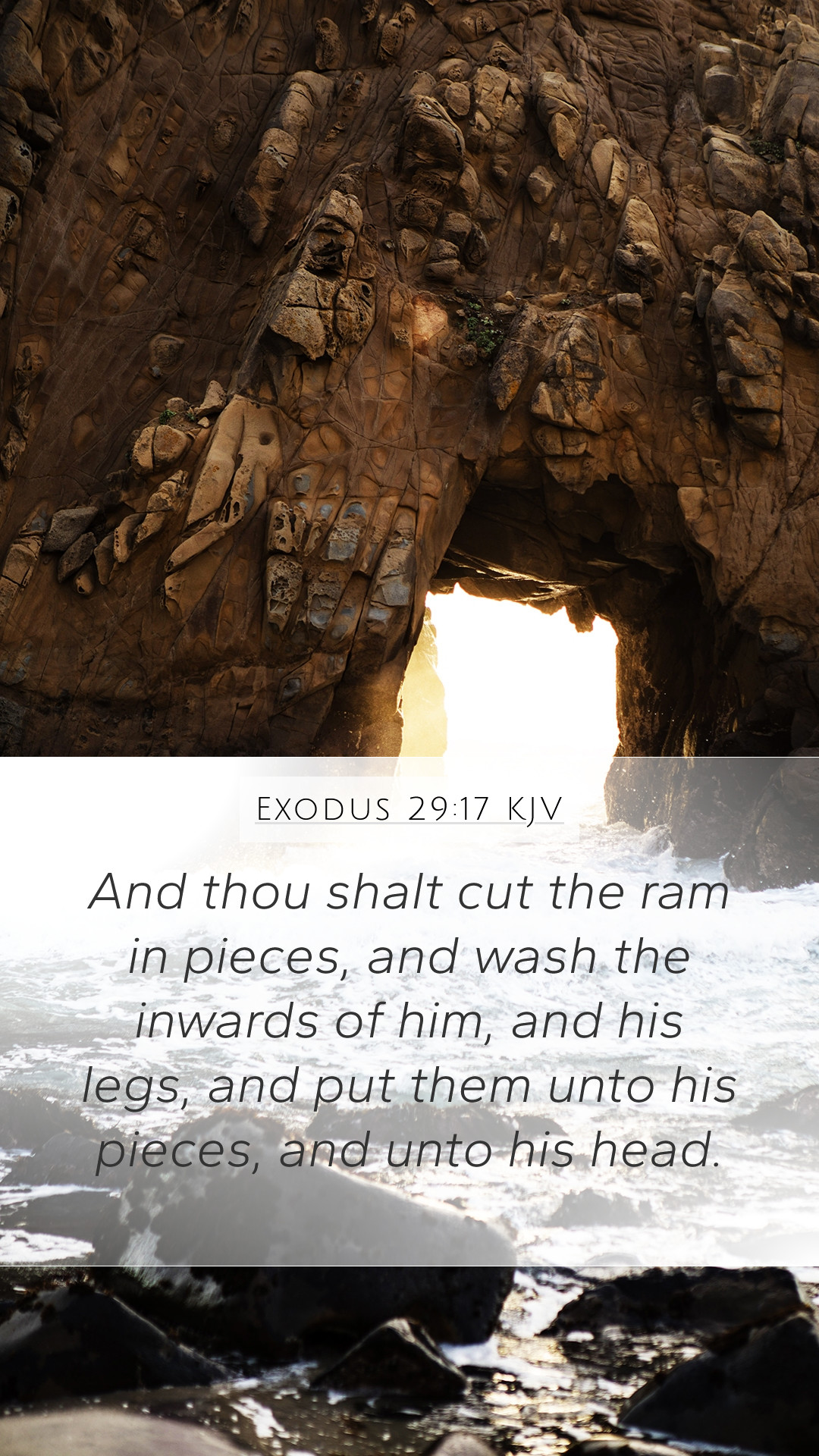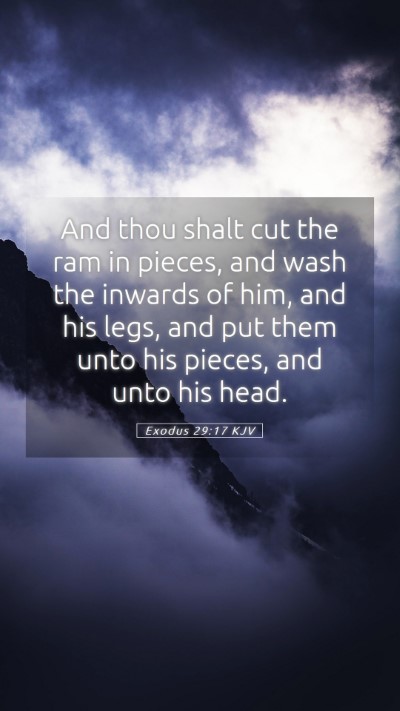Exodus 29:17 - Understanding the Significance of the Verse
Exodus 29:17 states: "And you shall cut the ram in pieces and wash its entrails and its legs, and put them with its pieces and with its head." This verse is a part of the detailed instructions given by God to Moses regarding the consecration of priests, specifically related to the sacrificial system.
Contextual Analysis
The significance of this verse extends beyond a mere ritual. It reflects the importance of purification and the seriousness of the sacrificial acts that were vital for maintaining a covenant relationship with God. Andrew Clarke, in his commentary, emphasizes that this rigorous process was essential for acknowledging the holiness of God and the gravity of sin.
Commentary Insights
- Matthew Henry: Henry explains that the cutting of the ram represents the idea of sacrifice — a life given as atonement. The detailed instructions highlight not just the physical act, but the spiritual significance behind every step of the process.
- Albert Barnes: Barnes emphasizes the concept of obedience and sanctification. He notes that the meticulous nature of the command reflects God’s desire for the worshipers to approach Him with reverence and purity.
- Adam Clarke: Clarke discusses the symbolism inherent in sacrificial rites. He points out that cutting the ram and washing its parts represents cleansing and preparation before presenting a sacrifice to God, which mirrors the spiritual cleansing believers undergo through faith.
Theological Implications
This verse serves as a representation of the sacrificial system that foreshadows the ultimate sacrifice of Christ. The processes illustrated in verses like Exodus 29:17 are seen in light of New Testament teachings, where Christ’s once-for-all sacrifice fulfills the Old Testament sacrificial laws.
Key Themes
- Holiness: The rigorous nature of the sacrifices points towards God's holiness and the need for His people to approach Him with utmost care.
- Atonement: This verse exemplifies the concept of atonement, necessary for restoring the relationship between God and man.
- Obedience: The emphasis on following God's directives illustrates the importance of obedience in worship and service.
Cross References
- Leviticus 1:12: Further instructions on the sacrifices and the importance of following God’s commands in ritual purity.
- Hebrews 9:22: Discusses the necessity of blood for atonement, reinforcing the symbol of sacrifice.
- Romans 12:1: Calls believers to present their bodies as a living sacrifice, alluding to the essence of the sacrificial system.
Practical Applications
For today’s believers, understanding the intricate details of Exodus 29:17 enriches the study of Scripture, showing the foundational aspects of worship and sacrifice in connection to Jesus Christ's sacrifice. Such comprehension enhances one’s daily life by encouraging adherence to spiritual purity and devotion.
Through Bible study insights and engaging in Bible study groups, individuals can explore deeper meanings of Scripture and apply them to their lives. This verse invites us to consider how we prepare ourselves to approach God’s presence today.
Conclusion
In summary, Exodus 29:17 is not merely a ritualistic instruction but a profound declaration of God’s holiness and the gravity of atonement. The layers of meaning in this verse, explored through various biblical commentaries, offer rich insights for both historical context and contemporary Christian living. By understanding Scripture through the lens of these principles, believers can engage in meaningful Bible study lessons that lead to personal growth and stronger faith.
Further Study and Reflection
For more comprehensive insights into this and similar verses, consider utilizing Bible study tools and Bible study resources. Engaging with online Bible study platforms can help in obtaining diverse interpretations and applying them practically in life.
As you reflect on Exodus 29:17, consider the implications it has not only within its original context but also in your personal journey of faith and understanding of God’s sacrifice.


